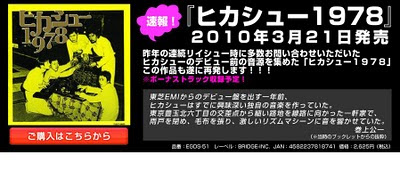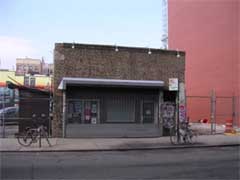
Side A:
1. Gold Finger (J. Barry)
2. Theme From "No Smoking" (Umebayashi Shigeru)
3. Mushuku (Sakamoto Ryuichi)
4. Surfin' U.S.S.R. (Suzuki Keiichi)
5. Washington Square (B. Goldstein)
6. Octopus Tree (Hosono Haruomi)
Side B:
1. Beautiful Teacher from the Swimming Pool (Takahashi Yukihiro)
2. Mecca (Imai Yutaka)
3. Sutekina Flamingo (Takeda Kazuo)
4. Salty Dog (Kato Kazuhiko)
5. Ginza Ska (D. Wilson - B. Bogle - N. Edwards - M. Taylor)
6. Pike (Yamashita Yasushi)
The Ventures are:
Don Wilson, Slide Guitar
Bob Bogle, Bass
Nokie Edwards, Lead Guitar
Mel Taylor, Drums
with
Kato Kazuhiko, additional guitar
Imai Yutaka, additional keyboard
Matsutake Yutaka, Synthesizer Manipulator
Arranged and produced by Kato Kazuhiko
Recorded by Biff Vincent at California Recording Studio
Released on June 21, 1980.
This is the "new-wave" album of the Ventures.
Reissued as CD in 1992 and 2000. The 2000 edition has bonus tracks.
The CD rereleases are out of print but the album itself is now available as mp3 download from itunes and amazon.com.
You could see the Ventures playing the songs from the album on those clips:
This one has Pike, starts at 3:50
related entry:
The Story of Pike













